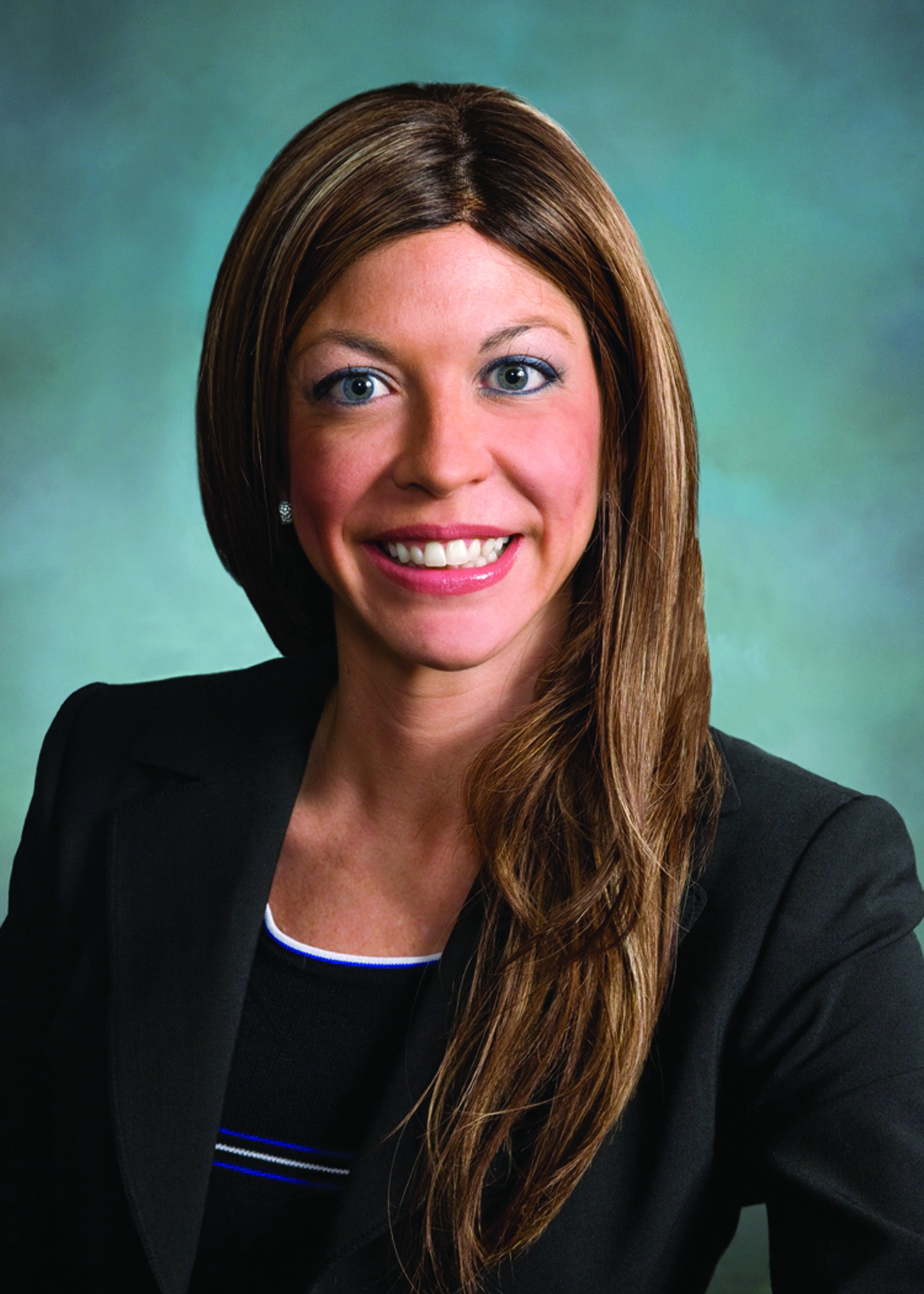Recognizing that sports is big business, Arizona State University has moved to create the next generation of problem solvers for a global industry that Forbes says could soon exceed a trillion dollars annually.
The Downtown Phoenix campus has been particularly active, with high-profile hires that include media professionals, such as Arizona Republic sports columnist Paola Boivin, and sports executives, including former Major League Baseball Commissioner Bud Selig.
The push from the Walter Cronkite School of Journalism and Mass Communication and Sandra Day O'Connor College of Law also includes coursework, with a sports journalism major and a one-year sports law graduate program, which was unique when it was formed in 2014.
Attorney and sports agent Dana Hooper
The Super Bowl and baseball’s spring training are weeks away and the NBA season is turning toward its second half, giving ASU Now an opportunity to hear from one of the newest faculty members, sports agent Dana Hooper, a shareholder at international multi-practice law firm Greenberg Traurig, LLP.
Hooper, who joined the Sandra Day O'Connor College of Law last month, is teaching a three-credit class called “Professional Sports Law” in spring 2017. Recognized as a “Rising Star” by Super Lawyers magazine every year since 2012, the 2004 ASU grad is a certified athlete’s agent who provides legal representation to sports-oriented individuals and businesses.
She also played soccer in college at the University of California, Berkeley, helping shape her perspective on the multibillion-dollar industry. She spoke with ASU Now about her experiences in professional sports, what it’s like to be at the negotiation table and about her class.
Question: Were you a sports fan or athlete before you became an agent?
Answer: Yes. Sports have always been a big part of my life. My father worked for the Phoenix Suns and that in turn also led to an opportunity for me to work for the Suns and Mercury. I was behind the scenes interacting with the players and working games. I believe that helped me to develop an approach that was different than the average person. I was also a soccer player in college and had the opportunity to work in the athletic department at the University of California, Berkeley. From the time I was a young child, I played sports and was exposed to a lot of athletes of several different calibers, and it made me a fan from a unique perspective.
Q: How did you enter the field?
A: I was playing soccer in an adult tournament, and I was placed on a team with some professional players. One of the players was a young woman from England who was getting ready to move to New York because she was offered a professional contract to play there after being with Arsenal since she was a teenager. She said, “I heard you’re an attorney. I’m from England, and I don’t know what I’m doing with this contract. I was wondering if you’d consider being my agent?” I told her I wasn’t an agent but would be happy to review her contract. I knew soccer and I knew the law, so I was happy to help her. I asked her to allow me to represent her pro bono because I had never done this type of work before and wanted to navigate the waters and be open about that. She also had a teammate who needed the same help.
From there, I visited them in New York to figure out what their lives were like, where they lived, what kind of challenges they faced, what their training was like. I met the owners of the team, the president, the coaches, and I then took the team out to dinner and got to know them as individual human beings. From there, it started snowballing and people were contacting me, asking me if I’d represent them. That’s really how it started.
Q: One of the biggest finds in a new biography about a large Hollywood agency is that revenue from their sports division now dwarfs their film and television divisions. When, in your opinion, did this paradigm shift take place?
A: I think it took place about 10 years ago when sports and entertainment started melding together from a business perspective. It became prominent when athletes and agents started recognizing if they somehow get into mainstream television and media spots, that could be very lucrative. The agencies have done a good job focusing and capitalizing on athletes who have marketability and getting them into the entertainment space. That’s great because my sports practice has been able to cross over with the robust entertainment practice at my firm.
Q: The public’s perception of the sports agent is mostly formed through the 1996 movie “Jerry Maguire,” starring Tom Cruise. Was it authentic?
A: Twenty years ago I wasn’t in the business, so I couldn’t really opine as to my specific knowledge base of that time period. But I can tell you when I was working with the Phoenix Suns years ago, the agent was not as visible or prominent. Nobody knew who the agents were. Their names weren’t on the ticker, and social media did not exist. The profession 20 years ago was a very behind-the-scenes concept, but now you do know the big names of the NFL and NBA agents. If you land one or two big names — a LeBron James or a Larry Fitzgerald — your name is also known as their agent. That can be both good and bad. If you’re doing what you need to be doing for your client, it should be done behind the scenes in my opinion. To me, it’s all about the athlete.
Q: When you take on a client, do you also vet him or her?
A: I do. I need for it to be a team effort, and I have to be on the same page as my athletes. I don’t take on every athlete that comes to me. I have to be very careful and vet them like they have to vet me. I look at it as we’re both hiring each other. It’s not just about business but about the relationship that you’re going to have with your athlete. I can’t have someone on the other end who is not responsible, or is not professional, or dishonest to me.
Q: Determining an athlete’s worth and compensation probably involves a lot of intangibles.
A: There are a lot of factors involved — the individual athlete’s experience, their position — a point guard is likely not going to compare well to a center in terms of monetary value. Positions matter. Their performance matters. If somebody is a rookie, for example, there are certain parameters that each league has. There’s minimums and maximums.
There’s also a salary cap, which is different for each league and different for each gender. Sometimes a prominent athlete is willing to take less if they are going back to their hometown. Or maybe there wasn’t salary-cap room for a player, but they’ve always wanted to play for a certain coach. Or it could be a trade and a team can’t go past their salary cap and you’ve got to figure something out. Some deals are struck very quickly while others take months and months and months to iron out. There are a lot of different factors.
My motto is if I’m not a little bit embarrassed about what to ask for then it’s too low. But you don’t want to be so outlandish that they don’t take you seriously. It’s a juggling act.
Q: How do you continue to maintain a relationship with a sports organization when you’re continually at the opposite end of the negotiation table?
A: Everybody’s approach is different, but my approach is, “You’re about to become teammates with this athlete. So if we enter into this negotiation in a negative manner, it is not going to go well.” I prefer to enter into negotiations in a very businesslike yet friendly approach if possible. Now, that doesn’t mean that this approach may need to turn on its head because it has. It can go awry if the athlete is being mistreated or if the ownership is stonewalling the athlete. There have been situations where the athlete has been retaliated against, and you have to be able to manage all of those things that come with it.
For the most part I have very good relationships with the teams I negotiate against, but there’s always going to be that rub. You’re supposed to negotiate against somebody, but then you’re all supposed to hug in the end and love each other and be on the same team. It’s a very bizarre situation.
Q: Can you tell me what your class will look like and what you want to convey to students?
A: The class I’m teaching is “Professional Sports Law,” and it will have a variety of different angles. It’ll cover anything from intellectual property to what it means to be an agent to gender and race issues in professional sports. I will try to approach it in a practical way. Students who will take this class will either be interested in the law, business or both environments.
I would like for them to be reading the text and the materials and discussing it from more of a practical perspective. It doesn’t mean there’s not that academic flow throughout the class, but I want students to move away from frantically reading the assignments because they’re afraid they’re going to get called on from a case in 1983. I want it to be more about, “Gee, I read this case from 1983 — how could this help me in what I do whatever branch of the law I choose to represent?” I want them to be able to sock that away in their tool kit and pull it out when they become a practitioner of some sort. I want students to be able to use this information in their practical, everyday lives after they graduate and move into the “real world.”
More Law, journalism and politics

Veteran journalists Jorge Ramos and Marty Baron talk democracy and free press
Arizona State University hosted "Truth Across Borders," a bilingual panel featuring two of America’s most iconic journalists, last week in the Evelyn Smith Music Theatre on Arizona State University's…
Can elections results be counted quickly yet reliably?
Election results that are released as quickly as the public demands but are reliable enough to earn wide acceptance may not always be possible.At least that's what a bipartisan panel of elections…
Spring break trip to Hawaiʻi provides insight into Indigenous law
A group of Arizona State University law students spent a week in Hawaiʻi for spring break. And while they did take in some of the sites, sounds and tastes of the tropical destination, the trip…



